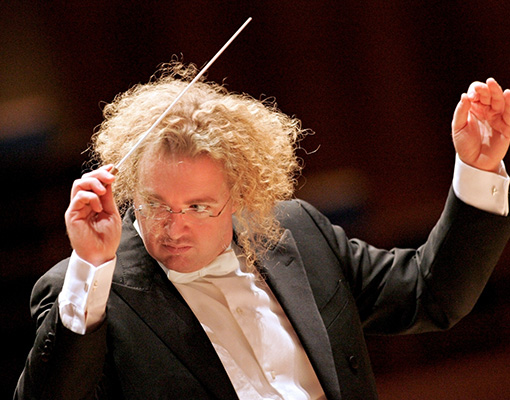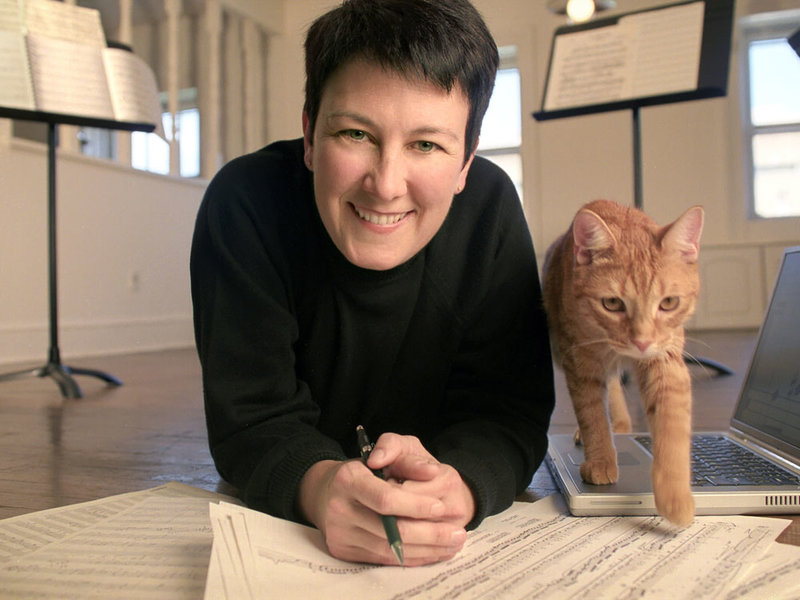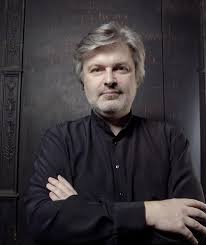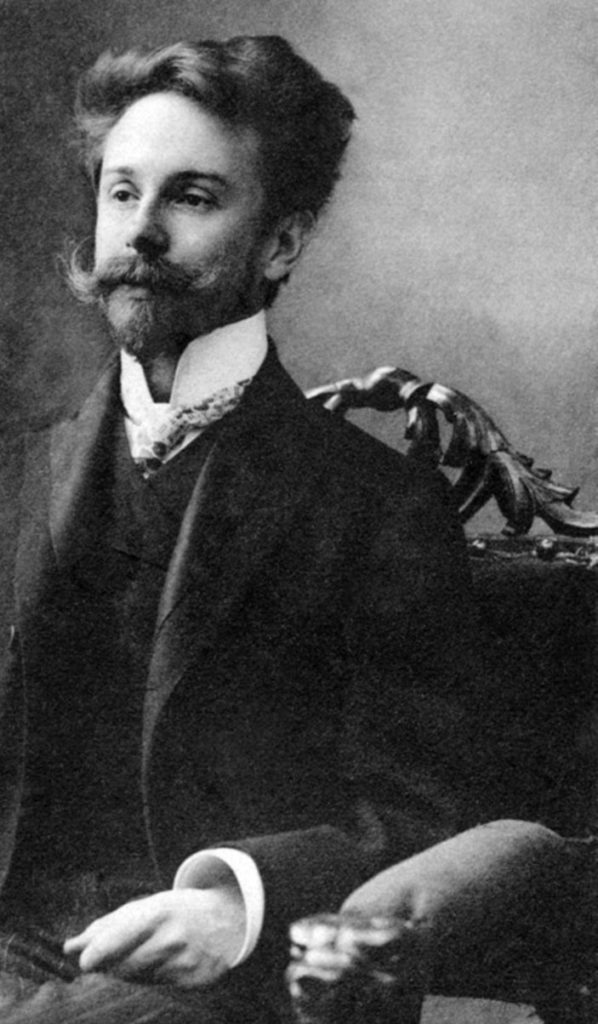by Mike Telin

1) An overwhelming feeling of great happiness or joyful excitement.
2) An emotional or religious frenzy or trance-like state, originally one involving an experience of mystic self-transcendence.
This week at Severance Hall, guest conductor Stéphane Denève will lead The Cleveland Orchestra in a musical exploration of the realm of ecstasy. The program includes Jennifer Higdon’s blue cathedral, James MacMillan’s Piano Concerto No. 3 (“The Mysteries of Light”) featuring Jean-Yves Thibaudet, Debussy’s Prelude to the Afternoon of a Faun, and Scriabin’s The Poem of Ecstasy. Performances take place on Thursday, April 25 at 7:30 pm, Friday at 11:00 am (no MacMillan), and Saturday at 8:00 pm. Tickets are available online.
“I think that programming is an art form in itself,” the very friendly Denève said by telephone from his home in Brussels. “The placement of a piece will influence the way that you listen to the next one. It’s a bit like planning a meal — you have to decide on the order of each dish.”
Denève, who serves as Music Director of the Brussels Philharmonic, said that programming music of the 21st century is a mission of his, noting that this program includes two such pieces, one of which is by a female composer. “At the same time the Scriabin is a rarity, and then there’s the blockbuster: the Debussy.”

In her program notes Higdon writes:
Blue…like the sky. Where all possibilities soar. Cathedrals…a place of thought, growth, spiritual expression…serving as a symbolic doorway in to and out of this world. Blue represents all potential and the progression of journeys. Cathedrals represent a place of beginnings, endings, solitude, fellowship, contemplation, knowledge and growth. As I was writing this piece, I found myself imagining a journey through a glass cathedral in the sky.
“There is a touching narrative here,” Denève said. “Jennifer plays the flute and her brother played the clarinet, and there are a lot of duets for the two instruments. They both played in the marching band at university, and there are also references to marching band music.”

Having lived in Scotland for eight years while he was the director of the Royal Scottish Orchestra, the conductor noted that he has a special connection with MacMillan.
“I lived in Glasgow and so did James, and we became friends. He’s a lovely man — extremely soft-spoken, very humble, sensitive, and a good listener. I was just talking to him on the phone a couple of weeks ago and he is finishing his fifth symphony, which will be premiered this summer at the Proms. I find his music to be a bit like Britten’s in that it kind of reflects the flavor of the area — it sounds like it is connected to the soil.”
Denève said the concerto, full of light effects and colors, is the perfect piece for Thibaudet. “He plays the piece so well. Jean-Yves is like family — we are close friends and he was the best man at my wedding. We see each other a lot, not just onstage.”
For Denève, the key to understanding Debussy’s Prélude à l’après-midi d’un faune is found in the work’s title. “This moment of noon is very symbolic. I don’t know if you have ever felt a very heavy summer sun when everything seems to stop moving and you want to nap because it’s too hot. I find it very special that the faun is kind of half-dreaming. There’s nothing else like this piece — it’s so inspired, structurally beautiful, and extremely sensual.”

When the Spirit has attained the supreme culmination of its activity and has been torn away from the embraces of teleology and relativity, when it has exhausted completely its substance and its liberated active energy, the Time of Ecstasy shall arrive.
“The only way I could imagine ending this program is with this piece,” Denève said. “In the score, there are a lot of French words describing the music, like très parfumé for instance — very perfumed. It builds to this radiant C Major at the end with the organ, which is so glorious and powerful.”
Winding down our conversation, I asked Denève about the Brussels Philharmonic’s Centre for Future Orchestral Repertoire, which collects information about works that have been premiered since January 2000 by professional symphonic ensembles of 60 players and above. The findings will be published on Cffor’s website, complete with links to audio files, publishers’ and composers’ websites, and other background data.
How many pieces are there? “It’s a few thousand,” Denève said. “We are improving the website as we speak. It’s fantastic to see, and for me it’s essential that we help the music world know what is there — what works are played. Every concert I perform in Brussels includes at least one piece from the 21st century without exception. I have had such nice feedback from the audience. They feel it is just normal to have this music at each concert.”
In addition to his positions in Brussels (his contract was recently extended to 2022) and Philadelphia, Denève is the Music Director Designate of the St. Louis Symphony Orchestra. “It’s good to have work,” he said. The week after Cleveland he’ll be in Philadelphia, then it’s off to St. Louis, and back to Brussels to finish the season.
“Then I am so happy because I will go to Amsterdam to conduct Pelléas et Mélisande with the Concertgebouw in the pit. It’s a dream come true. But in between performances I have some concerts in Berlin, so it’s crazy. I’m a little bit too busy, but I love music so it’s all good.”
Published on ClevelandClassical.com April 24, 2019.
Click here for a printable copy of this article


